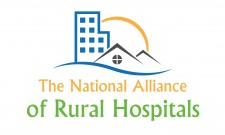National Alliance of Rural Hospitals Members Provide Testimony for Oklahoma's 'Any Willing Provider' Bill by Representative Moore

OKLAHOMA CITY, March 6, 2018 (Newswire.com) - Members of the National Alliance of Rural Hospitals (NARH) were out in force, providing their powerful input at the Oklahoma House Insurance Committee last Tuesday, in favor of HB3228. The bill would allow policyholders to receive care from “any willing provider”, opening doors to access that go well beyond their carrier’s network.
Current Oklahoma law allows insurance carriers to block providers from their network. The bill’s supporters argue that this impedes the choices available to policyholders, as well as limiting the ability of some healthcare providers to practice in the state.
The future of every rural hospital and their communities are in jeopardy.
Jorge Perez, NARH Chairman, EmpowerHMS
If the bill is successful, should any policyholder choose to go out of their carrier’s network, that healthcare provider will have the option of accepting the insurance carrier’s highest contracted reimbursement rate (which is a volume discounted rate) in return for not billing the patient above and beyond copay and deductible amounts stated within their policy.
While the aim of the bill is to expand access for every citizen in an effort to enhance and encourage market competition, the CEOs of 4 rural hospitals view the bill as their hospital’s last best chance at survival.
The hospitals are members of the NARH, and each was recently terminated from the network of Blue Cross Blue Shield of Oklahoma. Being shut out from Oklahoma’s largest private insurance provider could be the death knell for these hospitals, and as all of them would attest, for their communities as well.
“These hospitals worked in good-faith for over a year towards a mutually beneficial agreement,” stated Paul Nusbaum, Board Member of the Hospitals, “at every turn, we were met with offers of punitive decreases in reimbursement rates and when we wouldn’t submit, BCBSOK withdrew.”
Working hand-in-hand with the Patient Choice Coalition of Oklahoma and their Executive Director, Dan Chepkauskas, each CEO traveled to the Capitol to carry with them the voices of their patients, the community, as well as all of Rural Oklahoma.
Tina Steele, CEO of Fairfax Community Hospital, spoke passionately as to how this bill is crucial to avoid penalizing the patients she serves; left unchecked, they would have no choice but to travel “30-40 miles” for care.
Echoing Steele’s concerns was Fairfax resident, Joe Conner who told of the “huge burden” and “disruption” felt by citizens who were informed the hospital would no longer be an in-network choice for them.
Tracy Byers, CEO of Drumright Regional Hospital explained to the Committee what a critical role his hospital has played in partnerships with other healthcare facilities in training the next generation of physicians and healthcare professionals; “We would like to continue to offer the choice to our patients and offering the teaching sites to these facilities,” Byers stated.
Prague City Council member, John Klabzuba, addressed the Committee and told a moving story of how a visitor to the town’s annual Kolache Festival had been severely injured in a traffic accident, and that it was because of the access to the fine medical care provided by Prague Community Hospital that she thankfully survived. If the hospital were to close, Klabuza added, people with life-threatening emergencies would be placed in a position of driving far for care in situations that were a matter of life or death.
Prague Community Hospital CEO Randy Simmons took to the microphone, looking back on his 25 years as a CEO. Simmons contended that he could never have imagined a carrier deserting a rural hospital in such a manner.
Simmons testified that it was his hope that successful passage of the bill would reverse this “unconscionable” decision which “(adversely) affects the least-mobile, oldest, sickest population in the state,” Simmons asserted.
“If this decision by BCBSOK is designed to shut off access, hopefully, this Patient Protection Act is designed to keep it,” Simmons continued.
The legislation moves to the House Floor for passage and would then messaged to the Senate for deliberations in that Chamber.
The NARH President says he couldn’t be more grateful. “Representative Moore has truly stepped up to the plate to fight for these hospitals and their communities,” Mike Murtha declared. “We have been surprised and pleased to see that we have so many champions in the Oklahoma Legislature; their perseverance and their commitment is inspiring.”
Mike Murtha
NARH President
mmurtha@ruralhospitalliance.com
352-222-0000
Source: National Alliance of Rural Hospitals
